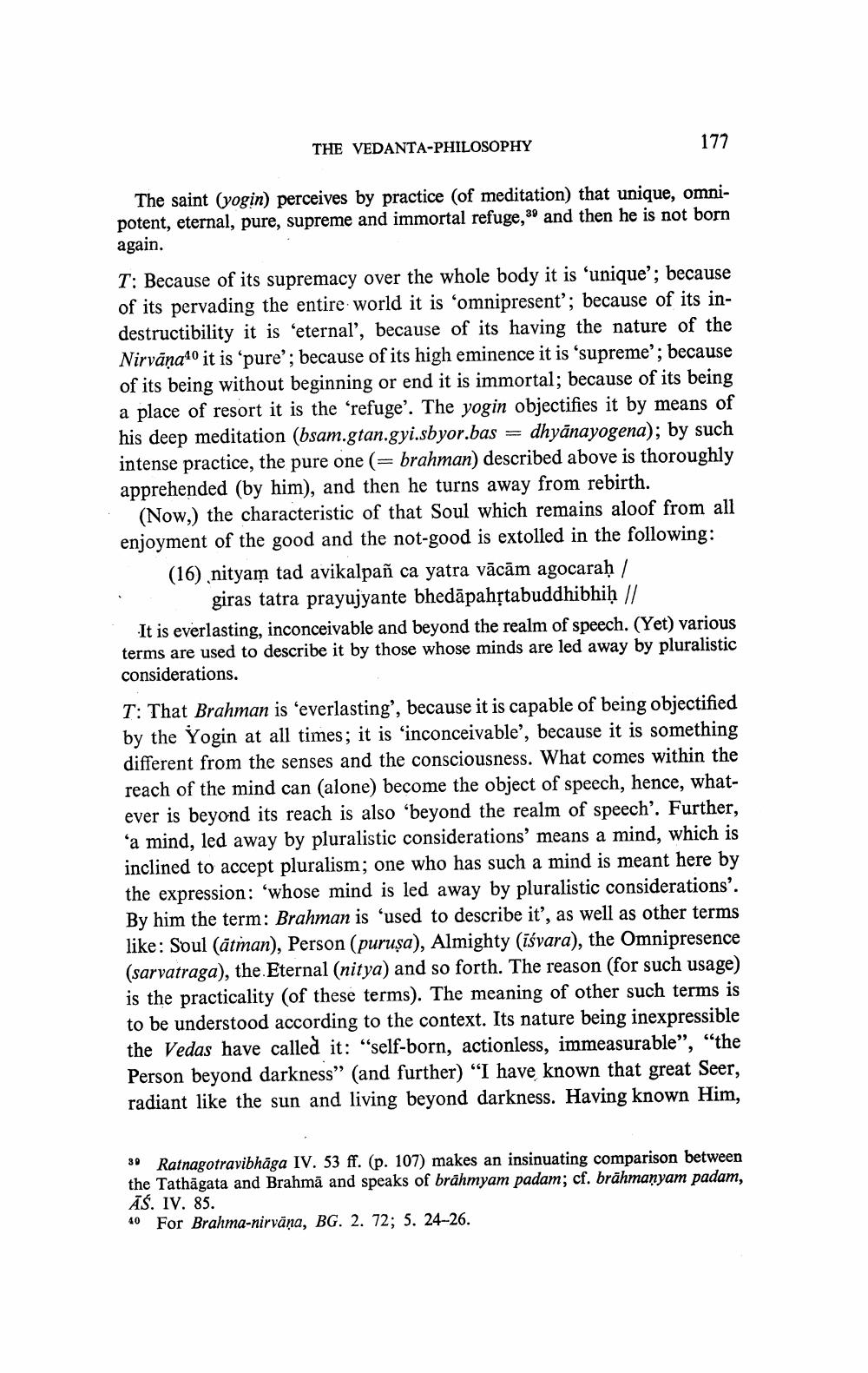________________
THE VEDANTA-PHILOSOPHY
177
The saint (yogin) perceives by practice (of meditation) that unique, omnipotent, eternal, pure, supreme and immortal refuge, and then he is not born again.
T: Because of its supremacy over the whole body it is 'unique'; because of its pervading the entire world it is 'omnipresent'; because of its indestructibility it is 'eternal', because of its having the nature of the Nirvana10 it is 'pure'; because of its high eminence it is 'supreme'; because of its being without beginning or end it is immortal; because of its being a place of resort it is the 'refuge'. The yogin objectifies it by means of his deep meditation (bsam.gtan.gyi.sbyor.bas dhyanayogena); by such intense practice, the pure one (= brahman) described above is thoroughly apprehended (by him), and then he turns away from rebirth.
(Now,) the characteristic of that Soul which remains aloof from all enjoyment of the good and the not-good is extolled in the following:
(16) nityam tad avikalpañ ca yatra vācām agocaraḥ / giras tatra prayujyante bhedapahṛtabuddhibhiḥ //
It is everlasting, inconceivable and beyond the realm of speech. (Yet) various terms are used to describe it by those whose minds are led away by pluralistic considerations.
T: That Brahman is 'everlasting', because it is capable of being objectified by the Yogin at all times; it is 'inconceivable', because it is something different from the senses and the consciousness. What comes within the reach of the mind can (alone) become the object of speech, hence, whatever is beyond its reach is also 'beyond the realm of speech'. Further, ‘a mind, led away by pluralistic considerations' means a mind, which is inclined to accept pluralism; one who has such a mind is meant here by the expression: 'whose mind is led away by pluralistic considerations'. By him the term: Brahman is 'used to describe it', as well as other terms like: Soul (ätman), Person (puruşa), Almighty (iśvara), the Omnipresence (sarvatraga), the Eternal (nitya) and so forth. The reason (for such usage) is the practicality (of these terms). The meaning of other such terms is to be understood according to the context. Its nature being inexpressible the Vedas have called it: "self-born, actionless, immeasurable", "the Person beyond darkness" (and further) "I have known that great Seer, radiant like the sun and living beyond darkness. Having known Him,
39
Ratnagotravibhāga IV. 53 ff. (p. 107) makes an insinuating comparison between the Tathāgata and Brahma and speaks of brahmyam padam; cf. brahmanyam padam, ĀS. IV. 85.
40
For Brahma-nirvana, BG. 2. 72; 5. 24-26.




